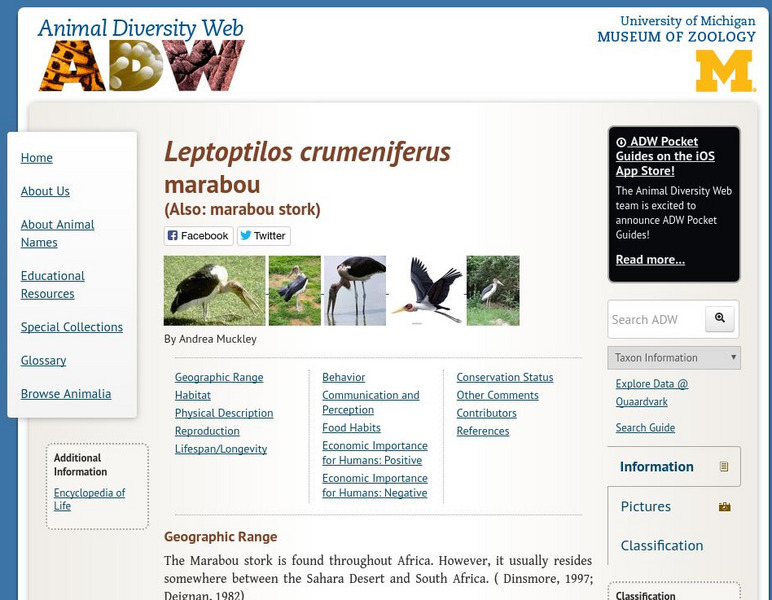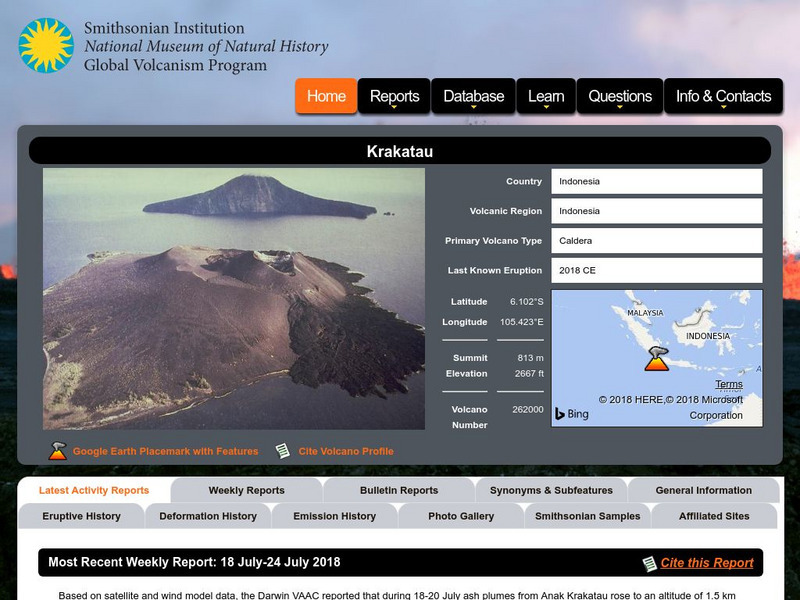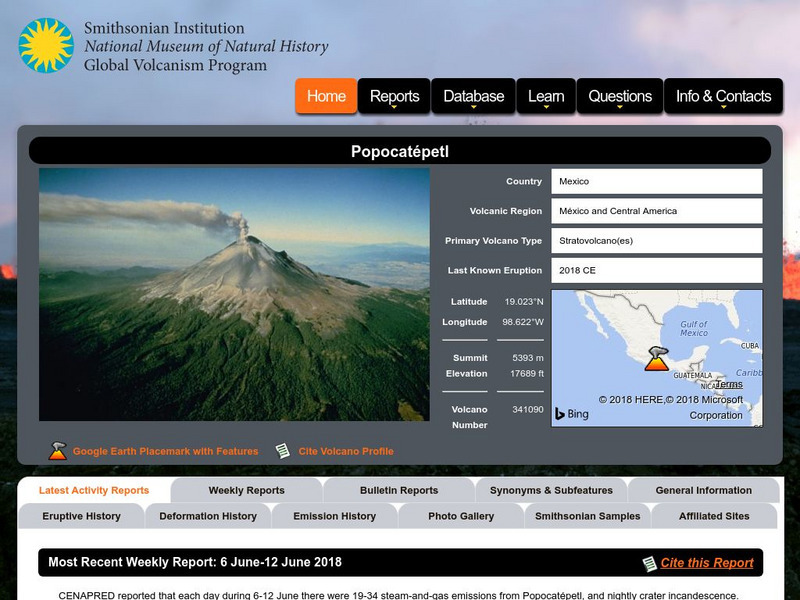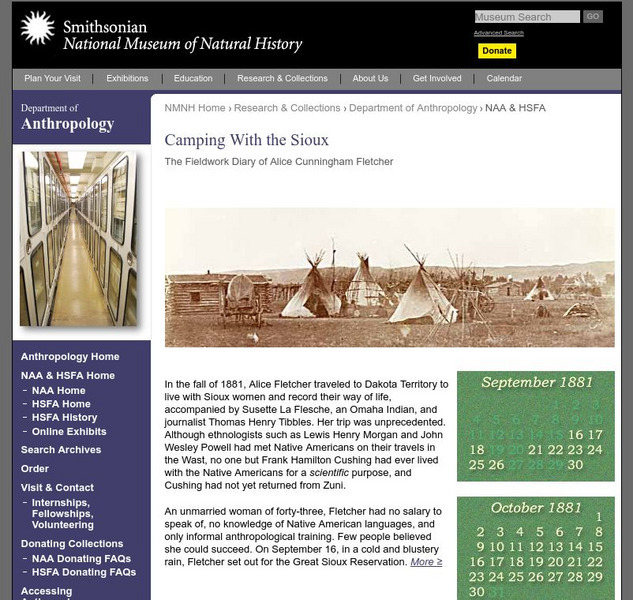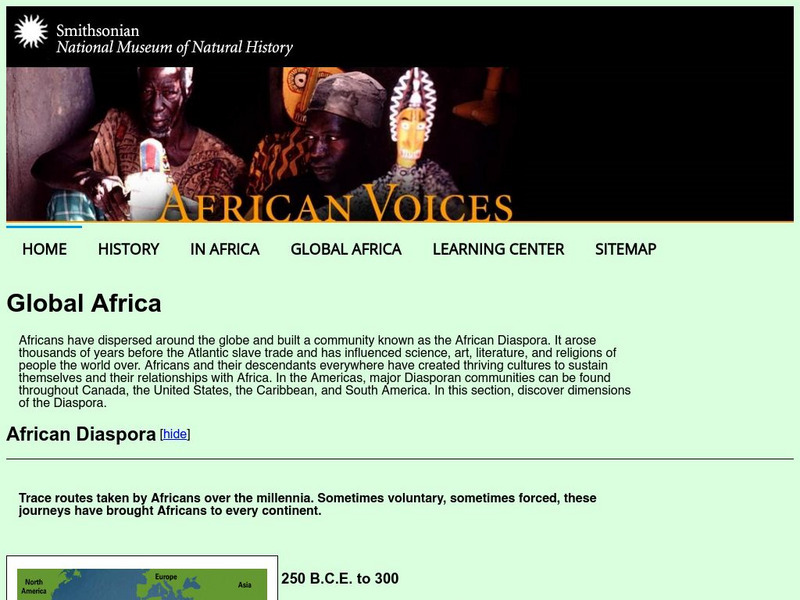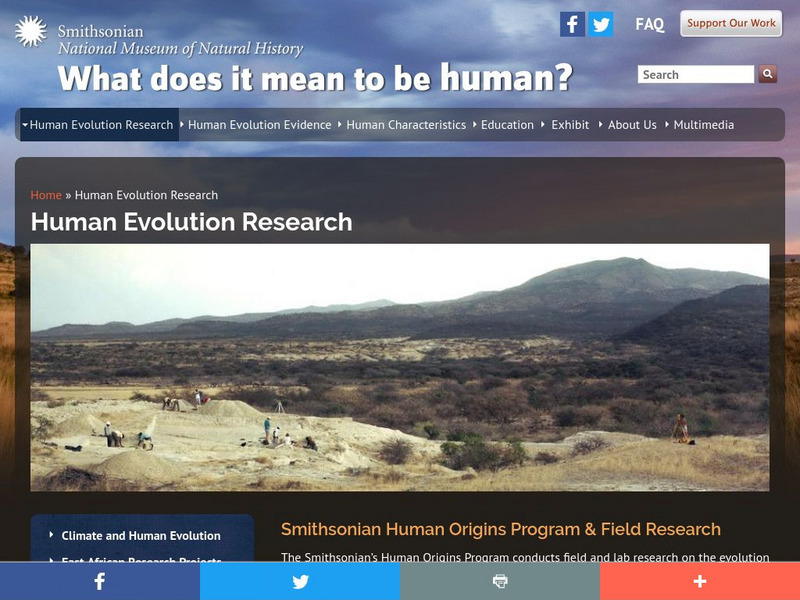Hi, what do you want to do?
Regents of the University of Michigan
Animal Diversity Web: Leptoptilos Crumeniferus
A detailed overview of the Marabou stork. Content focuses on this bird's geographic range, physical characteristics, natural history, economic importance for humans, and current conservation efforts.
Smithsonian Institution
National Museum of Natural History: Department of Invertebrate Zoology
Search the Invertebrate Zoology Collection, and read about original research performed on all 30 major invertebrate animal phyla except insects.
Smithsonian Institution
National Museum of Natural History: Paleobiology: The Cambrian Period
Journey into the past while reading this comprehensive overview of the Cambrian Period that covers topics such as the Cambrian Explosion, Burgess Shale fauna, trilobites, fossil evidence, and climate and plate tectonics.
Smithsonian Institution
National Museum of Natural History: Paleobiology: The Ordovician Period
Journey into the past while reading this comprehensive overview of the Ordovician Period that covers topics such as reef ecosystems, Paleozoic Fauna, fossil evidence, and climate and plate tectonics.
Smithsonian Institution
National Museum of Natural History: Paleobiology: The Silurian Period
Journey into the past while reading this comprehensive overview of the Silurian Period that covers topics such as life in the seas, invasion of land, fossil evidence, and climate and geology.
Smithsonian Institution
National Museum of Natural History: Paleobiology: The Archaean Eon
Journey into the past while reading this comprehensive overview of the Archaean Eon that covers topics such as early continents and oceans, first life on Earth, Earth's atmosphere, fossil evidence, and plate tectonics.
Smithsonian Institution
National Museum of Natural History: Paleobiology: The Mississippian Period
Journey into the past while reading this comprehensive overview of the Mississippian Period that covers topics such as life in the seas, tetrapods and other life on land, fossil evidence, and climate and tectonics.
Smithsonian Institution
National Museum of Natural History: Paleobiology: The Proterozoic Eon
Journey into the past while reading this comprehensive overview of the Proterozoic Eon that covers topics such as the Prokaryotic life, Eukaryotes, glaciation, fauna evidence, and multicellular life forms.
Smithsonian Institution
National Museum of Natural History: Global Volcanism Program: Krakatau
The volcano Krakatau is in Indonesia. Learn about its background information, description, frequently asked questions, items of interest and useful links.
Smithsonian Institution
National Museum of Natural History: Global Volcanism Program: Volcanoes of the World
The Smithsonian Institute presents a searchable database on volcanoes of the world. Search by region, volcano name, or eruption date. There is also a chronological list of large eruptions during the last 10,000 years.
Smithsonian Institution
National Museum of Natural History: Global Volcanism Program: Popocatepetl Mexico
A lot of links to Popocatepetl in Mexico. You can link to background information, graphics and images, items of interest, menu of interest and useful links.
Smithsonian Institution
National Museum of Natural History: Department of Mineral Sciences Collections
A searchable database of minerals and gems. Search by keyword or pre-defined characteristics. A Help section is available as well for aid in searching.
Smithsonian Institution
National Museum of Natural History: Zoo Labs
Five inquiry-based investigations designed for the observation of primates in a zoo setting. The labs ask guiding questions and list notable primate behaviors.
Smithsonian Institution
National Museum of Natural History: Camping With the Sioux: Fieldwork Diary of Alice Fletcher
A fascinating site that presents the story of Alice Fletcher who traveled to Dakota Territory to live with Sioux women. Click on dates on the calendar for diary entries. Also includes historic photo gallery.
Smithsonian Institution
National Museum of Natural History: The Secret in the Cellar
The Secret in the Cellar is an interactive web comic based on the real finding of a body from the 17th century in the Chesapeake Bay area. Using historical and archaeological clues, students are guided to discover the truth about how...
Smithsonian Institution
National Museum of Natural History: African Voices: Global Africa
The rich, vibrant African American culture has spread far and wide through our world. Follow the routes taken over the millennia by examining the following maps that include short descriptions. Listen to audio from slaves describing...
Smithsonian Institution
National Museum of Natural History: What Does It Mean to Be Human: Human Evolution Research
Research continues to discover evidence left behind by prehistoric man. Discover the climate effects on human evolution and explore how the adaptable survived. The Asian and East African Research Projects in Kenya are described. You,...
Smithsonian Institution
National Museum of Natural History: What Does It Mean to Be Human, Human Characteristics
Explore walking upright, tools and food, bodies, brains, social life, language and how humans ultimately changed the world. Excellent charts, pictures and videos accompany easy-to-understand text on the earliest humans.
Smithsonian Institution
National Museum of Natural History: Asustralopithecus Afarensis
This resource offers an excellent definition of the species, Australopithecus afarensis.
Smithsonian Institution
National Museum of Natural History: Ocean Planet: In Search of Giant Squid
An on-line exhibit archived from a Smithsonian exhibit explores and interprets the facts and myths surrounding giant squids - the world's largest invertebrates.
Smithsonian Institution
National Museum of Natural History: Ocean Planet
Detailed website that was a companion to a 1995 traveling exhibit of the Smithsonian. Links to lesson plans and other educational materials are at the bottom of the page. Enter the exhibition to explore the world of the ocean.
Smithsonian Institution
National Museum of Natural History: Ocean Planet: Water Pollution Toxic Materials
This site, from an archived Smithsonian exhibit, describes and illustrates the effects of toxic materials on wildlife in bodies of water.
Smithsonian Institution
National Museum of Natural History: Does Our Background Shape Our Thinking About Environmental Issues? [Pdf]
A lesson plan where learners explore the positive and negative impacts of human activities on the environment today and in the distant past, and examine how attitudes towards the environment might be shaped by one's experiences growing...
Smithsonian Institution
National Museum of Natural History: Written in Bone: Forensic Files of the 17th Century Chesapeake
This very thorough site will fascinate those interested in forensic anthropology. You will learn what you can read from bones, how a face can be reconstructed from a skull, clues you can read from a burial, and about forensic cases both...





